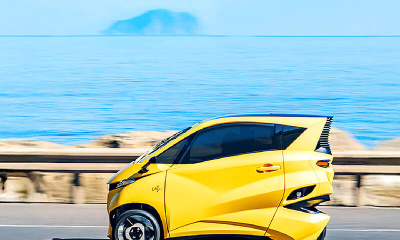Electric motorcycle startup RydeEV has officially split from Yinson GreenTech, ending its CelcomDigi partnership and charting a new independent path.

Subscribe to our Telegram channel for instant updates!
In an industry dominated by conglomerates and alliances, RydeEV just did something unexpected: it cut the cord.
The Malaysian electric motorcycle and battery-swapping startup has officially parted ways with its former parent, Yinson GreenTech (YGT). What started as a quiet rebranding has now been confirmed to be a full corporate separation. RydeEV is no longer just a sub-brand under a green tech portfolio — it’s an independent company with its own roadmap, its own risks, and, potentially, its own reward.
Not Just a Rebrand — A Full Split
According to updates shared on RydeEV’s Facebook and YGT’s LinkedIn, this isn’t a marketing refresh. It’s a structural shift. RydeEV is now a standalone entity — legally, operationally, and financially.
The company will continue to be led by Managing Director Syed Ahmad Faiz Syed Yusoff Fadzil, and YGT emphasized that although the corporate connection is gone, some form of collaborative relationship will remain. What that looks like, however, is still unclear.
This move is rare in Malaysia’s green tech landscape — a clean break that leaves RydeEV with both a blank canvas and an uphill climb. Independence brings agility, but it also removes the safety net that YGT likely provided in terms of funding, infrastructure, and institutional clout.

CelcomDigi Partnership Ends — What’s Next for RydeEV Riders?
The corporate divorce also means the end of RydeEV’s high-profile collaboration with CelcomDigi. The CelcomDigi x RydeEV postpaid plan, launched just in January 2024, offered affordable electric motorcycles bundled with unlimited battery swaps, road tax, insurance, and servicing. With prices starting from RM299/month and a RM1 buyout at the end, it was a bold attempt to bring EVs to the masses.
That plan is now history.
Effective 15 May 2025, existing customers will have to redirect payments to Oyika Green Technologies — RydeEV’s official business name — and sign a new Lease-to-Own agreement. The terms remain the same, but the brand behind the deal has changed. This shift raises questions about consumer confidence and service continuity, especially for a customer base that had bought into the CelcomDigi brand’s stability.
Reclaiming Its Identity: RydeEV’s Post-YGT Strategy
RydeEV isn’t starting from scratch. According to its own data, it has:
- Deployed 200 electric motorcycles
- Installed nearly 50 battery swapping stations nationwide
- Begun teasing new models like the EasyCool E-XDV, which includes Type 2 AC charging (a spec usually seen in electric cars)
There’s also the unfinished business of the Cervo electric scooter — once touted to be Malaysia’s first DC fast-charging e-moto. The project fizzled out, but the ambition behind it shows RydeEV’s appetite for innovation.
The big question now is this: can RydeEV survive — and scale — without YGT? It has the hardware, the early traction, and a vision. But vision doesn’t pay for nationwide charging networks or R&D for premium scooters. Funding, partnerships, and customer trust will all need to be rebuilt or resecured.
Fresh Start or Fragile Gamble?
RydeEV’s separation from YGT could either mark the beginning of a nimble new startup era — or a slow unraveling without the support of a corporate backer. What’s certain is that the company is now on its own ride. And just like its electric bikes, it’ll need to recharge fast, stay agile, and avoid running out of juice.































Facebook
Instagram
X (Twitter)
YouTube
LinkedIn
RSS